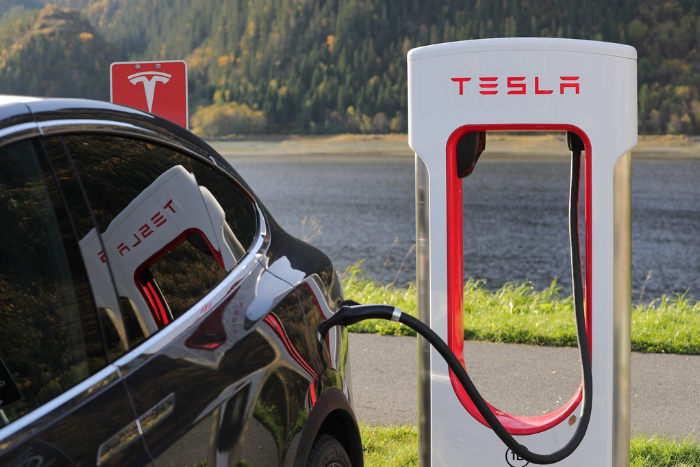Elon Musk, the CEO of Tesla, announced his upcoming trip to India. Tesla may be using this trip to look for a local partner to help launch its operations in India, Hindu BusinessLine reported. Reliance Industries and the US electric car giant are reportedly in discussions about a potential joint venture to construct the production facility in the country. Tesla has been considering a number of sites to locate the factory, including Maharashtra and Gujarat. Maharashtra may end up being the chosen site because it has port infrastructure, as per some reports. Along with Gujarat and Maharashtra, other states like Tamil Nadu and Telangana are also in the race to land the potential sites for the company’s planned $2-3 billion electric vehicle plant.
Lithium-ion battery recycling plant to come up in Uttarakhand
The science and technology ministry in Uttarakhand collaborated with Remine India Private Limited to establish a lithium-ion batteries (LIB) recycling plant in Sitarganj, Uttarakhand. The total project cost is about ₹15 crore, reported the Economic Times. The Technology Development Board under the ministry has committed financial assistance of ₹7.5 crore towards the project. The plant would use an indigenous technology developed by the Centre for Materials for Electronics Technology (CMET) based in Hyderabad. This move could also lead to decreased dependence on imported essential mineral resources and increase circularity. Currently, only 5% LIBs are recycled, with the remaining 95% ending up in landfills. It is anticipated that the market for recycled lithium-ion batteries will expand rapidly, with a compound annual growth rate of 21.6%, and approach $15 billion by 2030. The market was valued at $3.8 billion in 2021. Environment and human health are at risk when LIBs are improperly disposed of through landfilling and incineration. Efficient recycling can assist prevent health risks in addition to providing secondary raw materials for local cell manufacturing.
Kia and Hyundai sign up with Exide to produce EV batteries in India
Major South Korean automakers Hyundai Motor Company and Kia Corporation announced they will be localising the production of electric vehicle (EV) batteries in India through a cooperation with Exide Energy Solutions (EESL), reported the Business Standard. ESSL is a subsidiary of Exide Industries, a battery manufacturer based in Kolkata. Hyundai and Kia intend to concentrate on the development of lithium iron phosphate cells as part of their EV endeavours for the Indian market. Hyundai claimed in a statement that this strategic partnership will put them in the lead when it comes to using locally made batteries into their upcoming EV vehicles for the Indian market. By the end of FY25, commercial production for the first phase, which has a capacity of 6 gigawatt hours (GWh) out of a total of 12 GWh, is anticipated to start. The first phase, requiring an investment of around Rs 4,000 crore, is part of a total project cost of Rs 6,000 crore to be financed through internal accruals and bridge loans.
EV sales in India double to 96,000 units in 2023, electric 2-wheelers surge by 13%
According to the Bloomberg New Economy Forum, sales of electric vehicles (EVs) in India increased in 2023 across all categories. Sales of EVs for passengers nearly doubled to 96,000 units, or 2.3% of all passenger vehicle sales. The reason for this growth, which represents a major turning point in India’s EV adoption path, is a mix of factors such as reduced lifetime ownership costs, a wider range of models available, and strong state backing in the form of purchase subsidies and improvements in charging infrastructure. The market for electric two-wheelers also experienced significant growth, with sales rising by 13% to around 18 million units, or just less than 6% of all two-wheeler sales. Rising fuel prices and the release of additional electric models, which provide an affordable substitute for conventional gasoline-powered cars, are the main causes of this increase.
EU and India seek expressions of interest for joint battery recycling project
A forum for connecting entrepreneurs working on battery recycling technology for electric vehicles (EVs) has been announced by the European Union and India, Mercom reported. A matchmaking event between startups in the industry with small and medium-sized enterprises (SMEs) in Europe and India has invited Expressions of Interest (EoI). The deadline for submitting the EoIs is April 9–30, 2024. The date of the matching event has been provisionally set for June 20.It is anticipated that the platform will enable businesses to interact with venture investors and solution adopters situated in both nations, as well as present creative solutions. There will be six inventors chosen from the EU and India. During the matchmaking event, twelve innovators—six from India and six from the EU—will be chosen and given the chance to pitch their ideas. Following their pitching presentations, six finalists—three from the EU and three from India—will be selected, with the opportunity to tour the EU and India, respectively.
About The Author
You may also like
First EV battery plant launched in Indonesia, the country with largest nickel reserve
India can climb the global battery supply chain ladder. Here’s how.
New safety standards for EVs in India released
New method to produce hydrogen uses solar energy, agricultural waste
Tata Power-DDL to demonstrate vehicle-to-grid technology in North Delhi


